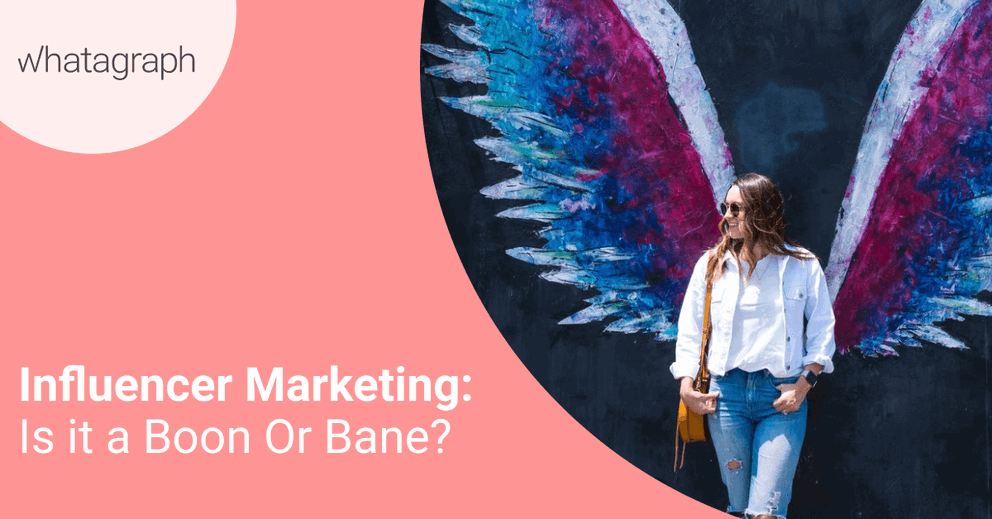Influencer Marketing: Is it a Boon Or Bane?
Influencer marketing is a great way to generate leads, sales, and engagement. What’s more, you can get quick results without burning a hole in your pocket.

Apr 14 2020 ● 2 min read

No wonder brands around the world are talking about it!
However, many brands have had little success with this strategy.
So, what’s the deal?
Is influencer marketing a boon or a bane?
Is it for you?
Before you decide, take a look at the pros and cons of influencer marketing.
Pros of Influencer Marketing
If done right, influencer marketing can help your business grow. Not sure how? Let’s take a look:
Pro #1: Influencers Can Help You Build Credibility
Trust takes time to develop.
You can’t expect your brand to generate it overnight.
However, partnering with relevant influencers can help you accelerate the process. That’s because people look up to influencers.
When influencers recommend your brand, you can earn more credibility and boost your brand awareness.
Pro #2: Influencer Marketing Can Boost Your Sales
Once you find influencers, you can reach out to a new audience. This, in turn, can help you boost your sales.
However, keep in mind that relevance is essential. Use influencer marketplaces to find the most relevant influencers to your brand.
For instance, if you sell sports shoes, collaborating with a food influencer would make little to zero sense.
However, by reaching out to a sports influencer, you can directly communicate with an audience interested in your product.
Pro #3: Influencer Marketing Is Affordable
Whether your business is small or big, affordability is likely to be an important factor in making crucial marketing decisions.
So, how does influencer marketing fare up?
If you are working with a limited budget, you can partner with micro-influencers.
Although they typically don’t have a huge follower count, many of them are likely to have highly engaged audiences. Using micro-influencers can also be a useful tactic for B2B marketers who are targeting a narrow industry or job title
Cons of Influencer Marketing
It’s evident that influencer marketing has many pros.
However, this strategy does come with its set of disadvantages as well.
Con #1: Influencer Marketing Could Hurt Your Reputation
If you collaborate with an influencer who has fake followers, you can damage your brand reputation.
Similarly, an influencer who posts fluffy and ingenuine content can dent your brand credibility.
Con #2: Influencer Marketing Is Risky
When it comes to influencer marketing, the onus for content creation rests on the influencer. If their content does not strike a chord with your target audience, your resources may get wasted.
This could result in a low ROI and monetary losses for your business.
If you’re a little too skeptical, consider partnering with an influencer marketing agency.
Check out this blog post published on shanebarker.com to find the best influencer marketing agencies to partner with.
Author Bio: Shane Barker is a digital marketing consultant who specializes in influencer marketing, content marketing, and SEO.
He is the co-founder of Attrock, a digital marketing agency. He has consulted with Fortune 500 companies, influencers with digital products, and a number of A-List celebrities.
Published on Apr 14 2020

WRITTEN BY
Gintaras BaltusevičiusGintaras is an experienced marketing professional who is always eager to explore the most up-to-date issues in data marketing. Having worked as an SEO manager at several companies, he's a valuable addition to the Whatagraph writers' pool.